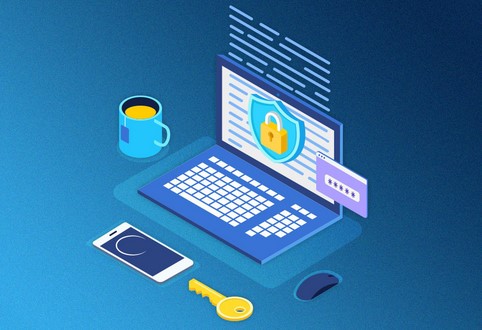In today’s digital era, cloud storage has become an integral part of our lives. From personal photos to sensitive business documents, we entrust a significant portion of our data to the cloud. Simultaneously, credit cards have become essential for online transactions. This article explores the intersection of cloud storage and credit cards, focusing on security measures to safeguard your data.

Cloud Storage: Convenience and Accessibility
Cloud storage services, such as Dropbox, Google Drive, and iCloud, offer users the convenience of storing, accessing, and sharing files from virtually anywhere with an internet connection. Here are some key advantages of using cloud storage:
- Accessibility: Cloud storage allows you to access your files on multiple devices, promoting flexibility and convenience.
- File Backup: It serves as a reliable backup solution, safeguarding your data against device loss or damage.
- Collaboration: Cloud storage facilitates collaboration by enabling multiple users to work on and share documents in real time.
- Scalability: Most cloud providers offer scalable storage plans, allowing you to adjust your storage needs as they evolve.
Credit Cards and Online Transactions
Credit cards have revolutionized the way we make payments, especially for online transactions. They offer several advantages, including:
- Security: Credit cards come with robust fraud protection mechanisms that can shield you from unauthorized transactions.
- Convenience: They simplify online shopping, as you only need to enter your card details once for multiple purchases.
- Rewards: Many credit cards offer rewards programs, providing cashback, travel miles, or discounts on purchases.
- Consumer Protection: Credit card users benefit from chargeback rights, allowing them to dispute unauthorized or unsatisfactory transactions.
The Intersection: Protecting Your Data
When it comes to online security, the intersection of cloud storage and credit cards is critical. Here’s how to ensure your data remains secure:
-
Use Secure Passwords:
- For both your cloud storage and credit card accounts, use strong, unique passwords.
- Consider a reputable password manager to generate and store complex passwords securely.
-
Enable Two-Factor Authentication (2FA):
- Activate 2FA for your cloud storage and credit card accounts whenever possible.
- 2FA adds an extra layer of security, requiring you to enter a one-time code sent to your mobile device.
-
Regularly Update Software:
- Keep your devices, cloud storage apps, and web browsers up to date with the latest security patches.
-
Monitor Account Activity:
- Frequently review your credit card statements for any unauthorized transactions.
- Set up notifications for both cloud storage and credit card accounts to receive alerts about account activity.
-
Encrypt Sensitive Data:
- Encrypt sensitive files before uploading them to the cloud.
- Ensure that the websites you use for online transactions employ encryption (look for “https://” in the URL).
-
Beware of Phishing Attempts:
- Be cautious of phishing emails and websites attempting to steal your login credentials.
- Always verify the legitimacy of websites before entering sensitive information.
-
Use Virtual Cards:
- Some credit card issuers offer virtual cards for online transactions, adding an extra layer of security.
- Virtual cards are temporary and have limited funds, reducing the risk of fraud.
Data Backup and Recovery
Despite stringent security measures, data breaches and loss can occur. It’s crucial to have a data backup and recovery strategy in place:
-
Regular Backups:
- Schedule regular backups of your data to your cloud storage.
- Consider using multiple cloud providers for redundancy.
-
Offline Backups:
- Keep offline backups of critical data on external hard drives or other offline storage media.
-
Recovery Plan:
- Develop a data recovery plan outlining steps to take in case of data loss or a security breach.
Conclusion: Balancing Convenience and Security
Cloud storage and credit cards offer unparalleled convenience in our digital lives. However, with convenience comes the responsibility to protect our data and financial information. By implementing robust security practices, using secure passwords, enabling 2FA, and staying vigilant against threats, you can strike a balance between convenience and security in the digital age. Remember that safeguarding your data is an ongoing process, and staying informed about evolving threats is key to maintaining a secure online presence.

